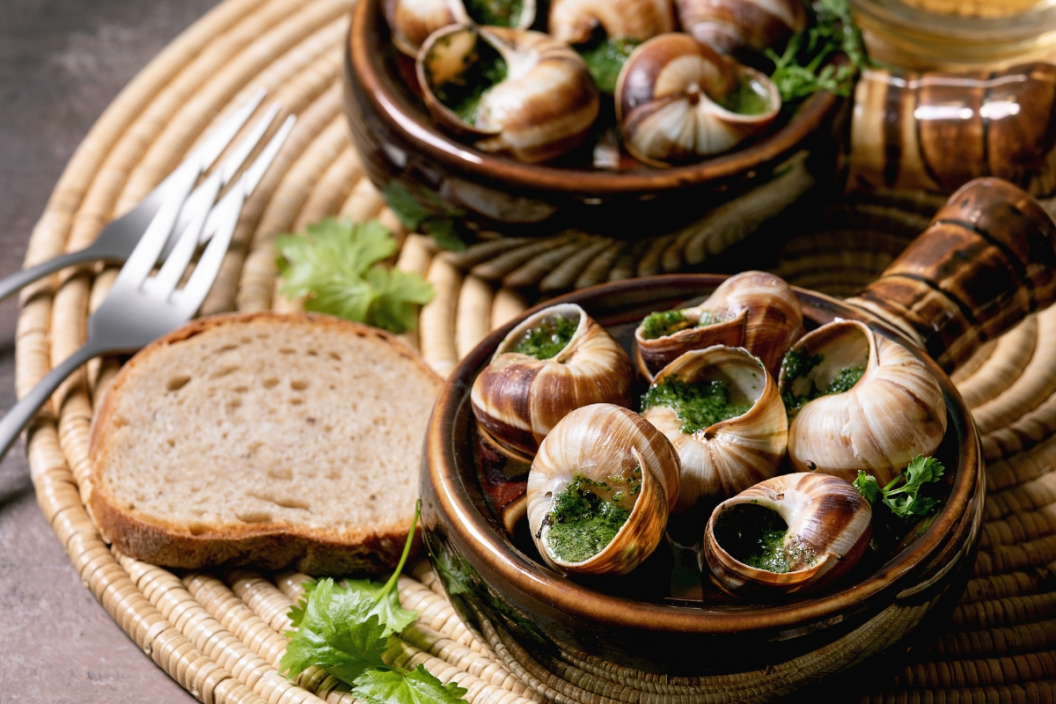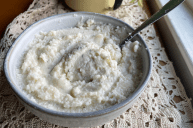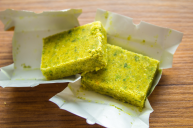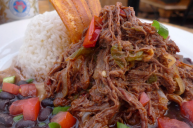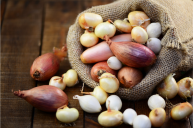One of the best parts of traveling is trying the foods of another culture, often full of ingredients that you would never have imagined eating. In Mexico you can eat a crunchy handful of crickets when you need a snack, and in Cambodia they enjoy fried tarantula. Another out-there food that comes from overseas is escargot.
What is Escargot?
Escargot, pronounced "es-car-goh," means snail in French, and the dish is true to its name. This unique dish originated in Burgundy, France, with the snail species Escargots de Bourgogne. It's also common in other European countries like Spain and Portugal.
Escargot can be enjoyed as an appetizer or entree, and is cooked in a variety of ways. Traditionally, the snails are prepared with ingredients like parsley, garlic cloves, sea salt and black pepper. Garlic butter or parsley butter are often used along with veggies like shallots, carrots, chives and onions.
This French delicacy can be served in the snail shells or removed, and it's especially delicious with a baguette and some white wine to wash it down. It's often cooked in special escargot dish and served with extra herbs and sometimes cheese.
How Does Escargot Taste?
The flavor of French escargot varies depending on how it's cooked. Escargot itself has a pretty mild flavor, similar to that of mussels, so it essentially tastes like what it was cooked in. Since this often includes butter, garlic and herbs, most escargot is garlicky and herby. As for the texture, this French delicacy is a bit chewier than mussels.
If this has you ready to dive into this pocket of French cuisine, don't get ahead of yourself- the land snails in your garden probably can't be used as escargot. Only a few land snails are edible, so it's best to try this delicacy in a French restaurant rather than in your own kitchen.
The Benefits of Escargot
Not only is escargot garlicky and delicious, it's also full of health benefits that make it worth a try! Snails are rich in vitamins and minerals like iron, magnesium, potassium, and vitamin E. Plus, they've been shown to improve your mood.
Snails, oysters, squid and clams all have a chemical called tryptophan. You may have heard of this chemical being in turkey, and being responsible for the post-turkey sleepiness that sometimes occurs after Thanksgiving. Along with this, tryptophan is shown to help your brain produce serotonin, which improves your mood. So, along with being a culinary adventure for your tastebuds, trying escargot might make you happy!
